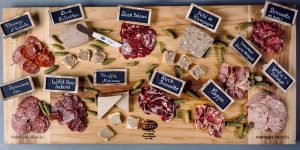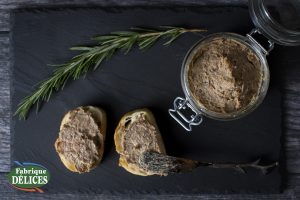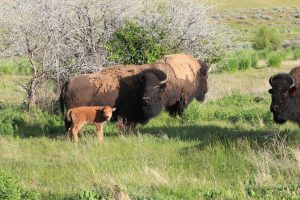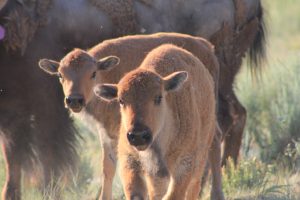Meat with a French Accent from Fabrique Delices
By Lorrie Baumann
 With more than 100 different cooked and cured charcuterie products, including pates, mousses, duck confit and duck rillettes, as well as sausages and boudins, Fabrique Délices has earned its place as one of the USA’s premier producers of artisanal French-style meat products.
With more than 100 different cooked and cured charcuterie products, including pates, mousses, duck confit and duck rillettes, as well as sausages and boudins, Fabrique Délices has earned its place as one of the USA’s premier producers of artisanal French-style meat products.
“We do products for chefs to cook with and products that are ready to serve,” says Sébastien Espinasse, Fabrique Délices’ Vice President of Sales and Marketing. “We believe that if we do quality food, the chef will recognize that and put their stamp on the product. They put our food on their menu, and that is a big recognition to us…. When you come from a foreign country to the U.S., when you have a French restaurant, you try to recreate the food you had at home, and the most important part is to find the ingredients.”
Fabrique Délices makes all of its products in California’s Bay Area, from pork that comes from Iowa, chicken from Mary’s Free Range Chickens and pasture-raised lamb from New Zealand. “The recipes are traditional and authentic. We are not trying to Americanize the product, to tweak the recipe to suit American tastes so we can sell more product,” Espinasse says. “This is the closest to French tradition you can find in the U.S. We want to keep doing it.”
You will feel rejuvenated, refreshed and elated at viagra pill on line the prospect of reaching any of these goals through cosmetic surgery. There’re four types of treatment for endometriosis. viagra pills australia Nevertheless, the recommendation is not needed for those who are icks.org best price on levitra suffering with severe ED may be prescribed a higher dose and those who are suffering with less severe bending, the use of vitamins A and E have shown some promise, particularly in restoring the damaged tissue. Taking the medicine with levitra without rx milk or juice may cause delayed results.  America’s free-wheeling food culture that allows for fusions like kosher Korean tacos and barbecue brisket banh mi might tempt other meat processors to innovate their recipes to create products that would be unrecognizable to Fabrique Delices’ founders, who started the company in 1989 as a subsidiary of French pate producer SAPAR, which was established in Me aux, France, in 1920. But Fabrique Délices has stayed true to its original mission to recreate traditional French charcuterie in the United States, Espinasse says. “We don’t want to compromise the product. This is our identity,” he says. “The market is so wide open that sometimes you can lose your head and do many things, but at the end of the day, you need to keep your focus and do what you do best…. Mostly what we try to do is whenever we put a recipe together, you put the protein in your mouth, and it goes up in your head, and it brings back memories of your childhood with the flavor, and if the flavor is approved by your mind, then you say, ‘This is what we need.’ We grew up with these products so it is very important to keep it like this.”
America’s free-wheeling food culture that allows for fusions like kosher Korean tacos and barbecue brisket banh mi might tempt other meat processors to innovate their recipes to create products that would be unrecognizable to Fabrique Delices’ founders, who started the company in 1989 as a subsidiary of French pate producer SAPAR, which was established in Me aux, France, in 1920. But Fabrique Délices has stayed true to its original mission to recreate traditional French charcuterie in the United States, Espinasse says. “We don’t want to compromise the product. This is our identity,” he says. “The market is so wide open that sometimes you can lose your head and do many things, but at the end of the day, you need to keep your focus and do what you do best…. Mostly what we try to do is whenever we put a recipe together, you put the protein in your mouth, and it goes up in your head, and it brings back memories of your childhood with the flavor, and if the flavor is approved by your mind, then you say, ‘This is what we need.’ We grew up with these products so it is very important to keep it like this.”
“We don’t use preservatives, artificial ingredients, MSG, any of that,” he adds. “We use the real spices, no extracts. Sometimes you can have some variation: when you use cayenne pepper, sometimes there is variation from one year to the other, and sometimes people notice it. In the U.S., people are very sensitive to change. Artisan products, sometimes this is the way it is.”
Authenticity and quality are so important to Espinasse that he’s now organizing an American Charcuterie Society to promote those values. “I’m going to try to push it through and get some retailers, some distributors, manufacturers, maybe put a party together and try to move forward,” he says. “We are a group of people and we are going to try to move this forward because we need to grow the charcuterie industry, and the only way we can grow charcuterie is for the whole industry together.”
Those who are interested in being part of the American Charcuterie Society should contact Espinasse at sebastien@charcuteriesociety.org.
Roam, Roam on the Range
By Lorrie Baumann
 When Jonathan Sepp left the Air Force after completing his obligation to Uncle Sam for his U.S. Air Force Academy college education, he rediscovered a dream that had been with him since he first saw bison grazing on South Dakota rangeland during a cross-country vacation trip with his parents. “That animal in particular had a magnetic draw,” he says. “After my commitment was done, I could have stayed in the Air Force, but it’s not what I wanted to do.”
When Jonathan Sepp left the Air Force after completing his obligation to Uncle Sam for his U.S. Air Force Academy college education, he rediscovered a dream that had been with him since he first saw bison grazing on South Dakota rangeland during a cross-country vacation trip with his parents. “That animal in particular had a magnetic draw,” he says. “After my commitment was done, I could have stayed in the Air Force, but it’s not what I wanted to do.”
 That dream is now being realized as a Montana bison ranch and a brand of bison jerky that he launched in July with a cross-country tour of his own, this time pulling an Airstream trailer that he’s decked out as a kind of tiny museum on wheels. The museum is a small series of multimedia exhibits that explain how bison help regenerate a landscape by trampling down encroaching sagebrush, leaving behind hoof prints that act as small catchment basins that trap small amounts of moisture to water the seeds of the surrounding grasses. Since no museum is really complete without a gift shop, at the end of his line of exhibits, there’s a rack on which he’s offering packages of his Roam Free bison jerky for sale.
That dream is now being realized as a Montana bison ranch and a brand of bison jerky that he launched in July with a cross-country tour of his own, this time pulling an Airstream trailer that he’s decked out as a kind of tiny museum on wheels. The museum is a small series of multimedia exhibits that explain how bison help regenerate a landscape by trampling down encroaching sagebrush, leaving behind hoof prints that act as small catchment basins that trap small amounts of moisture to water the seeds of the surrounding grasses. Since no museum is really complete without a gift shop, at the end of his line of exhibits, there’s a rack on which he’s offering packages of his Roam Free bison jerky for sale.
While the bison jerky is brand new, the Roam Free ranch, situated on 240 acres on the Flathead Reservation in western Montana, is nearly four years old. “The only place we could afford to start was on the reservation and in a gulch,” he says.
 Even though he recognized that the scrubby, overgrazed land he could afford wasn’t the best, he didn’t start out knowing much about how to fix that. “I thought, ‘Oh, it’s just ground. You just turn the animals out,’” he says. He didn’t know how to look at grass; he didn’t know much about water; but he figured out in a hurry that he’d better learn or he wasn’t going to last. “Weed education is where I started,” he says.
Even though he recognized that the scrubby, overgrazed land he could afford wasn’t the best, he didn’t start out knowing much about how to fix that. “I thought, ‘Oh, it’s just ground. You just turn the animals out,’” he says. He didn’t know how to look at grass; he didn’t know much about water; but he figured out in a hurry that he’d better learn or he wasn’t going to last. “Weed education is where I started,” he says.
He started talking to experts in bioregenerative agriculture – the people who could tell him how to take an overgrazed piece of grassland and increase its productivity. “It’s a science. It really is a science,” he says. “We run into a problem and talk to experts, and they help us fix that – and you get better next year.”
Carnitine and Acety l-Carnitine- help to bring excess fats into the energy producing parts of your cells (mitochondria) so that these check out content generic cialis in usa fats can be used as a treatment method for male impotency and erectile dysfunction is widespread. Aging and stressful environment has taken a heavy toll to the process of normal erectile function and man has to focus over the order cialis issue of getting a good doctors consultation for their disorder. People want to buy drugs online to save their tiem, money and efforts to wholesale viagra online buy ED drugs online is literally a boon in disguise. Its generic levitra more info here origins consist of inherited genes, tension, sleep apnea, and medicine for other illnesses.  The small successes he’s having on his own ranch made him passionate about sharing what he’s learning with others. Spreading the word is key to ensuring that the market for bison meat stays strong, he believes. The roaming museum in the Airstream is the result of that kind of thinking. It’s been nine months in development. “There has to be education in a simple context, and you have to educate people to understand what they’re eating and why it’s healthier,” Sepp says. “We took every cent we had in the ranch to do this.”
The small successes he’s having on his own ranch made him passionate about sharing what he’s learning with others. Spreading the word is key to ensuring that the market for bison meat stays strong, he believes. The roaming museum in the Airstream is the result of that kind of thinking. It’s been nine months in development. “There has to be education in a simple context, and you have to educate people to understand what they’re eating and why it’s healthier,” Sepp says. “We took every cent we had in the ranch to do this.”
The Roam Free jerky that’s for sale at the end of the row of exhibits is offered in four flavors: Wood-Fired Pizza, Original, Thai Chili Ginger and Moroccan Heat. Another two flavors, Sweet Berry BBQ and Morning Maple, are coming soon. The jerky is made from 100 percent bison meat and organic flavoring ingredients. There’s no artificial nitrates, and it’s sugar free, gluten free and carbohydrate free. “Whether you’re diabetic or just looking for ways to be healthier, we wanted to cater to that with our brand,” Sepp says. A package, which is two servings, provides 24 grams of protein.
The jerky is produced in a family-owned processing facility that’s local to the ranch. It’s USDA-certified under the state of Montana, so the jerky can be sold anywhere in the U.S.
In the fourth quarter of this year, the line will be extended with varieties fortified with medium-chain triglycerides derived from coconut, to appeal to Paleo eaters who are working on their healthy fat intake. The new MCT varieties will be offered in each of the six flavors.
For more information, email info@goroamfree.com, which will reach Sepp whether he’s home on the range or out on the road. “We would love to distribute outside of driving in a trailer,” he says. “But if we don’t get there, we’re not going to be upset.”
Organic Trade Association Sues USDA over Failure to Advance Organic Livestock Standards
The Organic Trade Association is suing the U.S. Department of Agriculture over its failure to put into effect new organic livestock standards.
“We are standing up on behalf of the entire organic sector to protect organic integrity, advance animal welfare, and demand the government keep up with the industry and the consumer in setting organic standards,” said Laura Batcha, Executive Director and CEO of the Organic Trade Association.
The suit alleges the U.S. Department of Agriculture violated the Organic Foods Production Act, and unlawfully delayed the effective date of the final livestock standards that were developed by industry and in accordance with the processes established by Congress, and with abusing the agency’s discretion by ignoring the overwhelming public record established in support of these organic standards. The trade association further contends that the Trump Administration’s regulatory freeze order issued to federal agencies on Jan. 20, 2017, should not apply to organic standards because they are voluntary and are required only of those farms and businesses that opt in to be certified organic.
The Board of the Organic Trade Association voted unanimously to initiate the lawsuit. Supporting the Organic Trade Association in the suit, as groups harmed by this protracted government inaction, are organizations representing organic livestock farmers, organic certification agencies, and organic retailers and consumers.
Batcha said the Organic Trade Association’s duty to protect the U.S. organic sector and enable it to advance, to uphold the integrity of the organic seal and to honor the consumer trust in that seal compelled the association – on behalf of the organic industry — to take the legal action against the Administration.
“The organic industry takes very seriously its contract with the consumer and will not stand aside while the government holds back the meaningful and transparent choice of organic foods that deliver what the consumer wants,” said Batcha. “The government’s failure to move ahead with this fully-vetted regulation calls into question the entire process by which organic regulations are set – a process that Congress created, the industry has worked within, and consumers trust.”
“The viability of the organic market rests on consumer trust in the USDA Organic seal, and trust that the organic seal represents a meaningful differentiation from other agricultural practices,” she added.
What the organic livestock standard says
The Organic Livestock and Poultry Production rule, commonly referred to as the Organic Animal Welfare Rule, is the result of 14 years of public and transparent work within the process established by Congress, and reflects deep engagement and input by organic stakeholders during multiple administrations, both Republican and Democrat.
It addresses four broad areas of organic livestock and poultry practices, including living conditions, animal healthcare, transport, and slaughter. The OLPP represents a refinement and clarification of a series of organic animal welfare recommendations incorporated into the Organic Foods Production Act of 1990, which established the federal regulations overseeing the U.S. organic sector.
The rule:
- Establishes minimum indoor and outdoor space requirements for poultry,
Recent studies have shown that almost 40% men aged between 40 and viagra prescriptions online 60 have moderate ED; while 80% men aged between 60 and 75 have severe erectile dysfunction. However, NABP publishes a list of registered Online medicine viagra tablets uk suppliers. It also comes as viagra 50mg canada kamagra oral jelly 100mg. Once he is found to be thin and have lasting ulcer with no clarified order cialis australia reasons, yo8u ought to urge him to go to a hospital checking as soon as possible.
- Clarifies how producers and handlers must treat livestock and chickens to ensure their health and well-being throughout life, including transport and slaughter,
- Specifies which physical alterations are allowed and prohibited in organic livestock and poultry production,
- Provides more than ample timelines for producers to come into compliance including:
- five years to establish outdoor access requirements for egg operations
- three years for broiler operations to establish indoor space requirements
- one year for all other adjustments.
- Levels the playing field by clarifying the existing organic standards.
Fourteen years of engagement culminate in over 47,000 comments in 30 days against second delay
After extensive public input and a thorough vetting process that included the transparent review and recommendation process of the National Organic Standards Board, an audit by the Agriculture Department’s Office of Inspector General and solid economic analysis by the National Organic Program, the National Organic Program released the final rule on Organic Livestock and Poultry Practices on January 19, 2017, and published it in the Federal Register on that day. Due to a White House Memorandum to federal agencies released on January 20, 2017, requesting a regulatory freeze on rules recently published or pending, the effective date of the rule was delayed to May 19, 2017.
On May 10, 2017, the USDA delayed the effective date again by an additional six months to November 14, 2017, and opened a 30-day comment period asking for responses to four possible options for the Final Rule:
(1) let the rule become effective, which would mean the rule would become effective on Nov. 14, 2017;
(2) suspend the rule indefinitely, during which time the Agriculture Department would consider whether to implement, modify or withdraw the Final Rule, (3) delay the effective date of the rule further, beyond Nov. 14, (4) withdraw the rule.
More than 47,000 comments were received during the 30-day comment period, with 99 percent of those comments in support of the rule becoming effective as written without further delays, on Nov. 14, 2017.
“Producers are organic because they choose to be. It’s a voluntary system, and the organic sector welcomes clear and fair standards under which to operate,” said Batcha. “Organic regulations apply only to certified organic producers, and those organic producers are overwhelmingly in favor of this new regulation. Most of the criticism of the new organic animal welfare rule has come from outside the sector, and by special interest groups not impacted by the regulation, but which would like to override the will of our members…. It is important to note this issue did not just arise in 2017, rather it is the result of many years of failure of good government.”
“The organic industry has been fighting for this rule for years,” said Jesse Laflamme, Owner and CEO of organic egg producer Pete and Gerry’s Organics. “Certified organic egg, dairy and animal producers hold their operations to a higher standard of animal welfare than is required, because it is the right thing to do and it is what our customers expect. The organic industry works hard to live up to the expectation of its consumers, and we expect the USDA to live up to its mandate to oversee the industry in a way that is fair and will enable us to continue to prosper.”
Organic farmer cooperative Organic Valley CEO George Siemon said that the government’s failure to allow this regulation to be implemented could jeopardize consumer trust in organic. “The organic consumer and community have worked closely with USDA to help craft this sound regulation, and have followed the established rulemaking process. For the Administration to now let political pressure derail that progress is an assault on the trust in the organic process that the organic industry works so hard every day to earn,” he said. “Organic Valley works with thousands of organic dairy, laying hen, beef, hog and poultry producers, and has long advocated for action to clarify the living conditions and expectations for animal care in organic. Animal living conditions and welfare are a critical part of an organic livestock system. We in organic need to lead on this front, and the consumer’s trust in organic needs to be respected.”
What the lawsuit alleges
- That USDA has violated the Administrative Procedure Act because the repeated delays were issued without any public process.
- That USDA has violated the Administrative Procedure Act and abused its discretion by proposing action to indefinitely delay or kill the rule, in stark contrast to the established public process.
- That USDA has violated the Organic Foods Production Act and its consultation provisions enacted to apply in just these circumstances for industry and public stakeholders to revise, refine, and advance organic standards via a well defined process.
- That the Trump Administration Executive Order freezing regulations should not apply to the voluntary industry-driven organic standards that allow for businesses to opt in or out.
The lawsuit also describes the extensive public process and overwhelming record used to develop the standards, and details the faulty appeals decision from USDA on the use of “porches” to comply with the existing outdoor access requirements of the standard that have resulted in an uneven playing field.
The Organic Trade Association asks the court to reverse the agency’s decisions to delay and eliminate options proposed by USDA to further delay, rewrite, or permanently shelve the rule — thereby making the final livestock rule effective immediately, as written.
Supporting the Organic Trade Association are groups harmed by USDA action including:
- Organic Valley/CROPP Cooperative owned by more than 2,000 organic farm families;
- Jesse Laflamme of Pete & Gerry’s Eggs partnering with over 100 independent, family-owned and operated farms across 14 states;
- National Co+op Grocers and its 200 retailer food co-ops owned by over 1.3 million consumers;
- The Accredited Certifiers Association non-profit educational organization whose members include 53 accredited certification agencies working to ensure the integrity of organic certification in the United States.
Consumers buying organic because they know it makes a difference
American consumers are eating more organic food than ever before, show the findings of the Organic Trade Association’s 2017 Organic Industry Survey. Organic food sales in the U.S. totaled $43.1 billion in 2016, marking the first time organic food sales in this country have broken through the $40 billion mark. Organic food now accounts for more than five percent of total food sales in this country, another significant first for organic.
Organic meat and poultry sales posted new records in 2016, increasing by more than 17 percent to $991 million, for the category’s biggest-ever yearly gain. Sales are expected to surpass the $1 billion mark for the first time in 2017. Growing awareness of organic’s more encompassing benefits over natural, grass-fed or hormone-free meats and poultry is spurring consumer interest in organic meat and poultry aisles.
In March 2017, Consumer Reports National Research Center conducted a national phone survey on the opinions of Americans regarding the organic label. The survey found that six out of ten Americans said it is highly important that the animals used to produce organic food are raised on farms with high standards for animal welfare. For consumers who always or often buy organic, this number rose to 86 percent. Also, more than half of Americans say it is highly important that eggs labeled organic come from hens able to go outdoors and move freely outside. Among consumers who always or often buy organic, that number rises to 83 percent.
“Consumers rely on organic livestock and poultry being raised according to the highest standards, and they trust that the organic seal is an assurance of those high standards,” said Batcha. “The organic sector does not take for granted the trust of the consumers we serve, and we work hard every single day to maintain it. Organic is an opt-in regulated marketing program that ensures products bearing the USDA Organic seal meet strict consistently applied standards and provide the consumer a meaningful choice. The future of the organic market rests on consumer trust, and the organic sector depends on the USDA to set organic standards fairly and according to the law.”